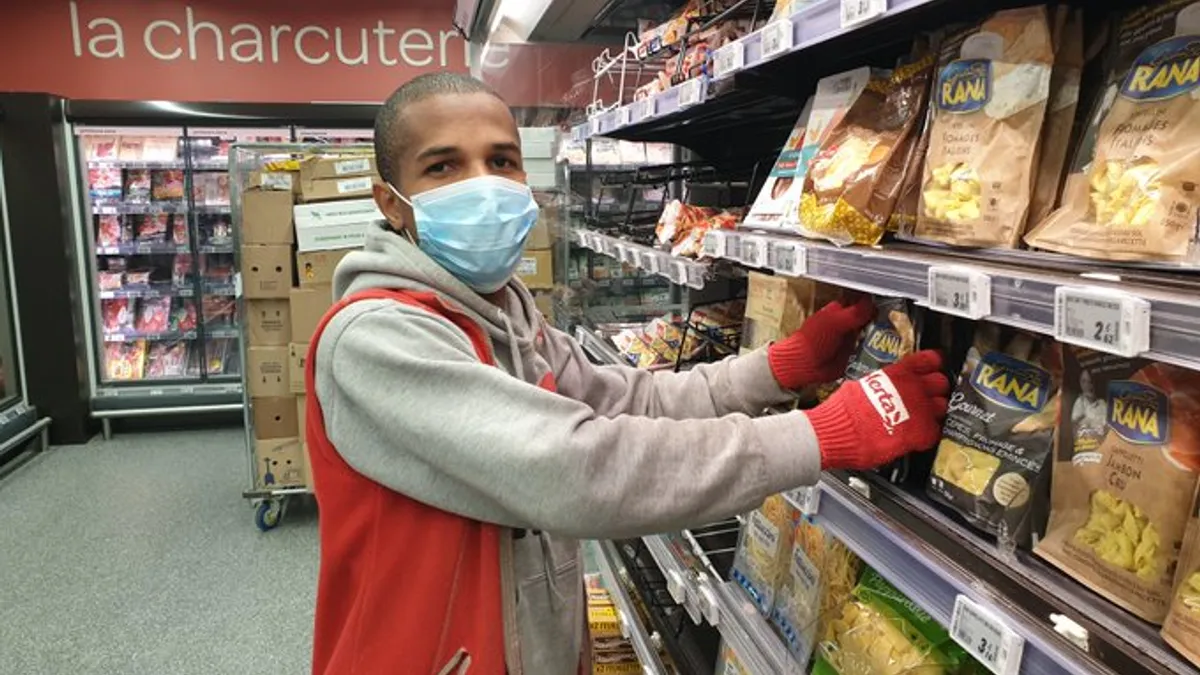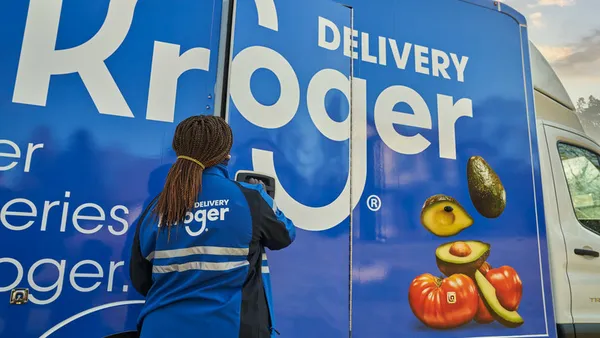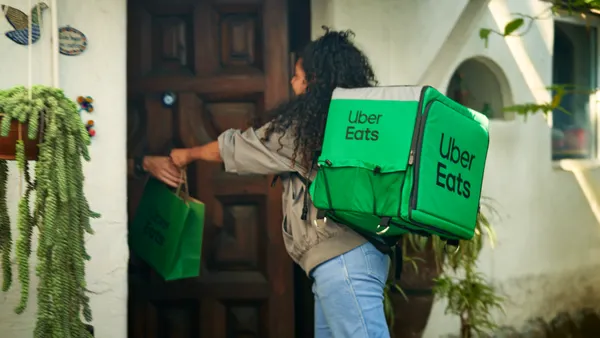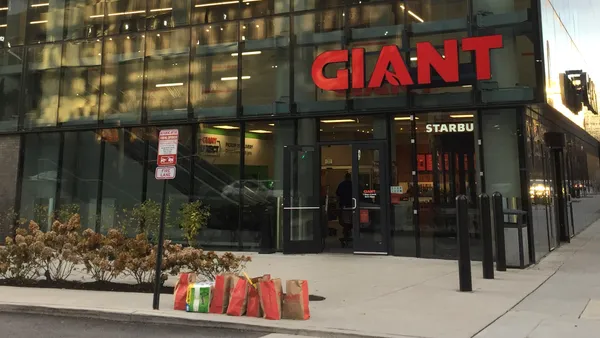For over a month, U.S. food retailers have scrambled to adjust to the rapidly spreading novel coronavirus. From one-way aisles to staffing tie-ups with restaurants, they've introduced a quick succession of new measures in stores, warehouses and online. But as the virus expands and shifts, they're still looking for ways to boost safety while keeping business flowing.
For inspiration, U.S. grocers could look to their counterparts operating abroad — some of which have been battling the virus for longer. Facing similar pressures, they've come up with creative yet practical solutions that build on those implemented by U.S. retailers.
Here's a look at the unique ways six grocers abroad are tackling COVID-19.
Carrefour
The French grocer, which operates more than 12,000 stores worldwide, created a new subscription e-commerce service that allows customers to order baskets of essential food products. The weekly baskets cost a maximum of 5 euros per day per person and are filled with basics, including orange juice, milk, cereal, pasta and rice. Carrefour then lets shoppers customize each basket according to three main protein selections: vegetarian, seafood and land-based meats.
The baskets can be supplemented with special kits for babies, dogs and cats as well as household maintenance kits.
Carrefour has also introduced #AllWithYou, an initiative that offers medical personnel dedicated slots and no fees on grocery deliveries. At its Carrefour Market locations, hospital and medical personnel can also pick up kits containing rice, pasta, eggs, milk, water, sugar, toilet paper and a baguette.
Carrefour HyperMarkets, meanwhile, are offering free meal baskets to truck drivers that aren’t able to grab lunch at their usual foodservice locations. The basket includes a sandwich, an alcohol-free beverage and a dessert, which is either a fruit or dairy product.
Woolworths
Australia-based Woolworths Supermarkets is temporarily shortening its payment policy toward small suppliers, many of whom are struggling due to economic uncertainties. Woolworths will pay its suppliers for goods and services within 14 days across the entire company.
In stores, Woolworths’ cashiers rotate every two hours to ensure face-to-face interactions are limited. Customers are required to pack their own bags to protect other customers and employees. Customers are also no longer required to enter a PIN for receipts totaling $200 or under in order to reduce contact.
To make sure it can get deliveries to elderly, immunocompromised and other vulnerable customers, Woolworths has identified 41 stores that serve as "priority delivery hubs." Each location operates limited hours, after which associates spend time picking and packing online orders specifically for these shoppers. Woolworths also operates dedicated early shopping hours for elderly and disabled customers, and has distributed more than 75,000 toilet paper packages to elderly shoppers through a partnership with Meals on Wheels.
SPAR International
Amsterdam-based SPAR has enacted various measures across Europe in response to the COVID-19 outbreak. In Poland, SPAR introduced a personal shopping service to help reduce congestion in stores. Customers are able to fill out an order form, place it in the designated area at the front of the store and when their order is ready, they are contacted to collect their items and pay.
To reduce direct contact, particularly for at-risk shoppers, SPAR Austria launched voucher cards that replace cash payments. The vouchers are available in-store and can be loaded with up to 200 euros.
Tesco
To ensure shoppers maintain social distancing as they enter and leave stores, the British retailer has attendants positioned in store parking lots. Stores also utilize separate entrances and exits, feature one-way aisles and limit shopper traffic to as little as 10 customers at a time in its 2,000-square-foot Express stores.
In order to provide delivery service to vulnerable shoppers, Tesco has capped online baskets across its shopper base at 80 items. The move will help put "more orders on to each van," the retailer recently stated.
Tesco is also opening pop-up locations at hospitals throughout the country. The retailer, which partnered with NHS Nightingale Hospital on the initiative, opened its first location earlier this month and plans to open at least four more locations in the coming weeks.
JD.com
The Chinese grocery e-commerce site has partnered with psychiatrists and counselors to offer customers free psychological assistance and counseling services through its app. The initiative, announced at the beginning of March, will last for six months.
Additionally, JD.com is providing vending machines in Beijing stocked with fresh produce from its 7Fresh to residential buildings that offer customers access to fresh produce 24/7.
JD.com also recently completed its first grocery delivery via drone in Hebei province on Feb. 7.
Ocado
The U.K.-based online supermarket, which briefly shut down last month due to elevated order volume, told customers that it would temporarily stop selling bottled water — a move that frees up an estimated 6,000 delivery slots each week. It also purchased 100,000 coronavirus testing kits in order to make sure its frontline workers who do not have the virus can keep returning, according to Bloomberg.
Because of the spike in customers, Ocado introduced a virtual queue to access its site and recommended shoppers share delivery slots with neighbors.












